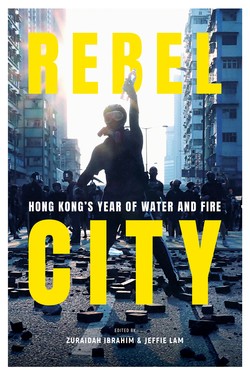Читать книгу Rebel City - South China Morning Post Team - Страница 36
На сайте Литреса книга снята с продажи.
Complaisance at the core
ОглавлениеBut as leaders of the pro-establishment camp criticized pan-democrats for scaremongering and encouraging interference by Western countries to intensify opposition to the bill, and pointed at Lam’s bullheadedness in pressing on regardless of the growing anger, at least one veteran pro-government lawmaker was prepared to say the camp itself needed to shoulder some blame.
Sources close to the government said it had been confident right up until early June 2019 that the bill would be passed, given the pro-establishment camp’s overwhelming majority in Legco. There are 43 pro-establishment lawmakers in the 70-member legislature, and they usually side with the government even on critical issues.
“The major problem with some people in the pro-establishment camp is complaisance. They too eagerly accept requests or instructions from the power bloc,” said Abraham Razack, who has spent nearly two decades in Legco representing the real estate sector. He had been in the thick of the Legco chaos in May, when both sides tussled for control of the committee to scrutinize the bill.
On June 11, a day before the bill was due to go before Legco, Razack dropped a bombshell. He spearheaded mainland-funded developer Goldin Financial Holdings’ decision to give up the right to buy a HK$11.1 billion (US$1.4 billion) site at the old Kai Tak airport, citing “social contradiction and economic instability.” The move, which meant forfeiting a HK$25 million deposit, was viewed widely as a sign that business confidence had been shaken by the extradition bill controversy. By that time, Razack, an independent non-executive director of Goldin, had expressed his reservations about the bill as well as the government’s attempt to rush it through the legislature.
Reflecting on the missteps, he said: “It disregarded legislative due process. It undercut the rule of law. It weakened human rights safeguards. It undermined the promise of ‘one country, two systems’. It fueled social confrontation. It dampened investor confidence. In short, it destabilized Hong Kong.” He said Lam was convinced the bill would do good, and was condescending in her determination to impose her will. “Our officials were suffering from tunnel vision. They were so focused on plugging the so-called loophole in extradition law that they lost sight of a much bigger hole that was cracking wide open in the dam,” he said.
Even after the bill was withdrawn in September, the anti-government protests continued. Increasingly, the district council elections in November came to be viewed as a barometer of support for the protest movement and the government. Although district councilors handle mainly municipal matters and have no say on policy, campaigning was intense. On November 24, nearly 3 million Hongkongers – 71.2 per cent of the electorate – came out to vote, a record turnout. The message from the ballot box was strong and unambiguous across Hong Kong, with pro-democracy newcomers sweeping aside pro-government veterans with long track records in many districts.
Beijing, however, brushed off the pro-establishment camp’s massive defeat, and news of the pan-democrat camp’s big win was censored heavily on the mainland. State media focused instead on calls to preserve law and order, accusing Western countries of instigating unrest in Hong Kong.
The shock in the pro-government camp has been plain to see. The leaders of major parties in the bloc have been left with no reason to be optimistic about their next challenge: the Legco election in September 2020. Half of Legco’s 70 seats will be contested in geographical constituencies, while the rest will come from trade-based functional constituencies. In the 2016 Legco election, pan-democrats and localists won 30 seats and pro-establishment candidates secured 40. After the district council polls outcome, analysts and key figures within the pro-establishment camp expect the bloc’s Legco candidates to be punished again.
Labor movement leader Ng, who started 2019 full of optimism about his party’s chances at the district council polls, began 2020 preparing for the worst in the next electoral test. “There is a real risk that the opposition camp will win more than half of the total seats in Legco,” he said in January 2020. He fears that the pro-establishment camp’s traditional strongholds in functional constituencies, such as engineering, catering, and sports and culture, may also fall to the opposition. On top of lingering unhappiness among voters related to the doomed extradition bill, the government started the new year by coming under fire for its slow response to the Covid-19 public health crisis caused by the coronavirus. That has added to the pessimism in the pro-government camp. “We will also suffer from the growing public discontent with the government’s handling of the pandemic,” Ng said.
